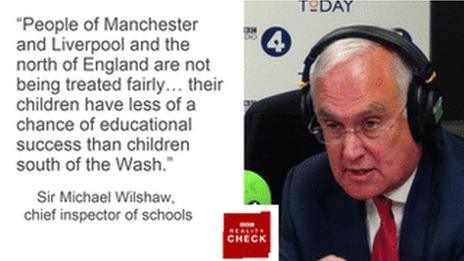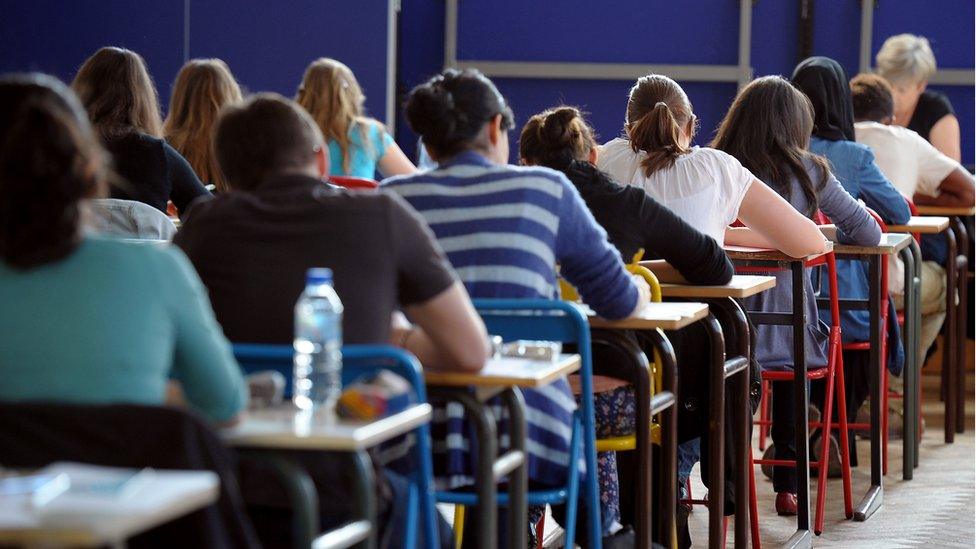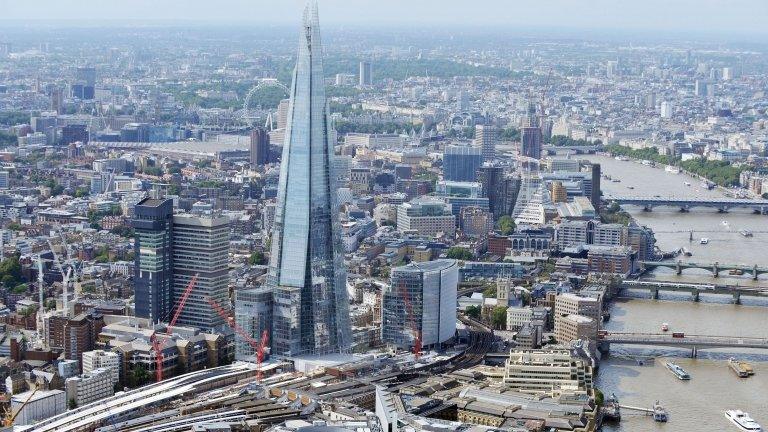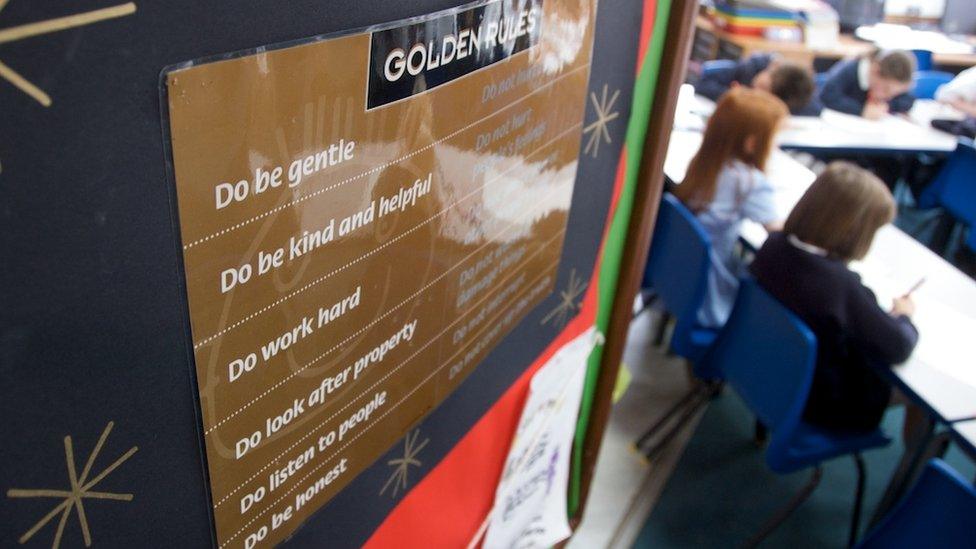School performance link to Brexit vote, says Ofsted boss
- Published
- comments
Sir Michael Wilshaw says creating an educated workforce in the north will feed into the wider economy
The failure to improve schools in some parts of England has contributed to the feeling of being ignored revealed in the Brexit vote, the chief inspector of schools, Sir Michael Wilshaw has said.
The Ofsted boss said while standards were rising overall, the number of poorly performing schools in the north and the East Midlands would continue to fuel the sense of a divided nation.
He said the situation was very serious.
The government said 89% of schools were good or outstanding.
In an interview with the BBC in Manchester, Sir Michael said the economic future of the north of England relied on addressing the poor performance of some schools.
He said the European Union referendum result had revealed a wider malaise, with communities feeling their needs were being ignored.
Although some northern city centre areas voted strongly to stay in the EU, large parts of Greater Manchester and some Merseyside towns voted in great numbers to leave.

Sir Michael says schools in northern cities such as Manchester need to improve
"The situation is very, very serious. If you look at Manchester, the city we're in, nearly one in three schools [is] not good. In Liverpool, half are good. If you look at satellite towns, things are worse.
"It's feeding into a sense that the people of Liverpool, Manchester and the North are not being treated fairly - that their children have less of a chance of educational success than people south of the Wash.
"And that's feeding into a wider malaise that I sense with the Brexit vote, that actually this wasn't just about leaving Europe, it's about 'our needs being neglected, our children are not getting as good a deal as elsewhere'.
"Parents want to see their children doing well; they want to see them going off to university; they want to see them getting a good job.
"Well, they have less of a chance of that in this city, in Liverpool and elsewhere and that feeds into this sense of discontent in the North and in the Midlands."
Join the conversation - find us on Facebook, external
His report said there was considerable evidence that schools in isolated and deprived areas where educational standards are low are losing out in the recruitment stakes.
It added that heads in north-west England are reporting an "auction" for teachers - particularly in Greater Manchester for hard to recruit subjects.
But there are also shortfalls in secondary subjects in south-east England.
Sir Michael said addressing education must be a government priority.
'More teachers'
The Ofsted annual report, published on Thursday morning, highlights that overall standards are rising, with 1.8m more pupils in good or outstanding maintained schools in 2016 than in 2010.
During this period, the curriculum and assessment regime had become more rigorous and children from poor backgrounds were gaining ground on their peers in national primary tests.
But the report also said to become truly world class, England needed to have:
High standards in education in every part the country
More teachers and leaders in in the right areas
Technical education that is on a par with academic education
It also highlighted the poor quality of education in the more geographically and economically isolated parts of the country, including coastal areas.
School Standards Minister Nick Gibb said good and outstanding schools now made up 89% of all schools inspected in England but acknowledged there was more to do.
"That's precisely why we have set out plans to make more good school places available, to more parents, in more parts of the country - including scrapping the ban on new grammar school places, and harnessing the resources and expertise of universities, independent and faith schools," he added.
Malcolm Trobe, interim general secretary of the Association of School and College Leaders, said the reasons for educational underperformance in some areas were complex.
He said: "Industrial decline, generational unemployment and high levels of deprivation have had a devastating impact on many parts of the country, creating extremely challenging social conditions.
"Schools in these areas often find it difficult to recruit staff and are hit particularly badly by the on-going nationwide teacher recruitment crisis."
Sir Michael retires as head of Ofsted at the end of the year. He will be succeeded by Amanda Spielman, who currently chairs exams regulator Ofqual.
- Published1 December 2016

- Published23 February 2016

- Published12 January 2016

- Published10 November 2016
